Solution Manual for A Microscale Approach to Organic Laboratory Techniques, 6th Edition, Donald L. Pavia, George S. Kriz, Gary M. Lampman, Randall G. Engel, ISBN-10: 1305968344, ISBN-13: 9781305968349
$35.00
Solution Manual for A Microscale Approach to Organic Laboratory Techniques, 6th Edition, Donald L. Pavia, George S. Kriz, Gary M. Lampman, Randall G. Engel, ISBN-10: 1305968344, ISBN-13: 9781305968349
SKU: ytvcg535737
Category: Solution Manual
Solution Manual for A Microscale Approach to Organic Laboratory Techniques, 6th Edition, Donald L. Pavia, George S. Kriz, Gary M. Lampman, Randall G. Engel, ISBN-10: 1305968344, ISBN-13: 9781305968349
Table of Contents
Experiment 1. Introduction to Microscale Laboratory.
Experiment 2. Solubility.
Experiment 3. Crystallization.
Experiment 4. Extraction.
Experiment 5. A Separation and Purification Scheme.
Experiment 6. Chromatography.
Experiment 7. Infrared Spectroscopy and Boiling Point Determination.
Experiment 8. Simple and Fractional Distillation.
Essay: Aspirin.
Experiment 9. Acetylsalicylic Acid.
Essay: Analgesics.
Experiment 10. Isolation of the Active Ingredient in an Analgesic Drug.
Experiment 11, Acetaminophen.
Essay: Identification of Drugs.
Experiment 12. TLC Analysis of Analgesic Drugs.
Essay: Caffeine.
Experiment 13. Isolation of Caffeine from Tea or Coffee.
Essay: Esters — Flavors and Fragrances.
Experiment 14. Isopentyl Acetate (Banana Oil).
Essay: Terpenes and Phenylpropanoids.
Experiment 15. Essential Oils: Extraction of Oil of Cloves by Steam Distillation.
Essay: Stereochemical Theory of Odor.
Experiment 16. Spearmint and Caraway Oil: (+)- and (-)-Carvones.
Essay: The Chemistry of Vision.
Experiment 17. Isolation of Chlorophyll and Carotenoid Pigments from Spinach.
Essay: Ethanol and Fermentation Chemistry.
Experiment 18. Ethanol from Sucrose.
Essay Molecular Modeling and Molecular Mechanics.
Experiment 19. An Introduction to Molecular Modeling.
Essay: Computational Chemistry — Ab Initio and Semiempirical Methods.
Experiment 20. Computational Chemistry.
Experiment 21. Reactivities of Some Alkyl Halides.
Experiment 22. Nucleophilic Substitution Reactions: Competing Nucleophiles.
Experiment 23. Synthesis of n-Butyl Bromide and t-Pentyl Chloride.
Experiment 24. 4-Methylcyclohexene.
Essay: Fats and Oils.
Experiment 25. Methyl Stearate from Methyl Oleate.
Essay: Soap.
Experiment 26. Preparation of Soap.
Essay: Petroleum and Fossil Fuels.
Experiment 27. Gas Chromatographic Analysis of Gasolines.
Essay: Biofuels.
Experiment 28. Biodiesel.
Essay: Green Chemistry.
Experiment 29. Chiral Reduction of Ethyl Acetoacetate; Optical Purity Determination.
Experiment 30. Nitration of Aromatic Compounds Using a Recyclable Catalyst.
Experiment 31. Reduction of Ketones Using Carrots as Biological Reducing Agents.
Experiment 32. Resolution of Phenylethylamine and Determination of Optical Purity.
Experiment 33. An Oxidation-Reduction Scheme: Borneol, Camphor, Isoborneol.
Experiment 34. Multi-Step Reaction Sequences: The Conversion of Benzaldehydeto Benzilic Acid.
Experiment 35. Triphenylmethanol and Benzoic Acid.
Experiment 36. Aqueous-based Organozinc Reactions.
Experiment 37. Sonogashira Coupling of Iodosubstituted Aromatic Compounds with Alkynes Using a Palladium Catalyst.
Experiment 38. Grubbs-Catalyzed Metathesis of Eugenol with 1,4-Butanediol to Prepare a Natural Product.
Experiment 39. The Aldol Condensation Reaction: Preparation of Benzalacetophenones (Chalcones).
Experiment 40. A Green Enantioselective Aldol Condensation Reaction.
Experiment 41. Preparation of an Unsaturated Ketone via Michael and Aldol Condensation Reactions.
Experiment 42. Preparation of Triphenylpyridine.
Experiment 43. The Wittig Reaction: Preparation of 1,4-Diphenyl-1,3-Butadiene.
Experiment 44. Relative Reactivities of Several Aromatic Compounds.
Experiment 45. Nitration of Methyl Benzoate.
Essay: Synthetic Dyes.
Experiment 46. Preparation of Methyl Orange.
Experiment 47. Preparation of Indigo.
Experiment 48. Formulation of a Paint and Art Project.
Essay: Local Anesthetics.
Experiment 49. Benzocaine.
Essay: Pheromones: Insect Attractants and Repellents.
Experiment 50. N,N-Diethyl-m-toluamide: The Insect Repellent “OFF”.
Essay: Sulfa Drugs.
Experiment 51. Sulfa Drugs: Preparation of Sulfanilamide.
Essay: Polymers and Plastics.
Experiment 52. Preparation and Properties of Polymers: Polyester, Nylon, and Polystyrene.
Essay: Diels-Alder Reactions and Insecticides.
Experiment 53. The Diels-Alder Reaction of Cyclopentadiene with Maleic Anhydride.
Experiment 54. The Diels-Alder Reaction with Anthracene-9-Methanol.
Experiment 55. Photoreduction of Benzophenone and Rearrangement of Benzpinacol to Benzopinacolone.
Essay: Fireflies and Photochemistry.
Experiment 56. Luminol.
Experiment 57. Identification of Unknowns.
Experiment 58. Preparation of a C-4 or C-5 Acetate Ester.
Experiment 59. Competing Nucleophiles in SN1 and SN2 Reactions: Investigations Using 2-Pentanol and 3-Pentanol.
Experiment 60. Friedel-Crafts Acylation.
Experiment 61. The Analysis of Antihistamine Drugs by Gas Chromatography-Mass Spectrometry.
Experiment 62. The Use of Organozinc Reagents in Synthesis: An Exercise in Synthesis and Structure Proof by Spectroscopy.
Experiment 63. Synthesis of Naproxen by Palladium Catalysis.
Experiment 64. The Aldehyde Enigma.
Experiment 65. Synthesis of Substituted Chalcones: A Guided-Inquiry Experience.
Experiment 66. Green Epoxidation of Chalcones.
Experiment 67. Cyclopropanation of Chalcones.
Experiment 68. Michael and Aldol Condensation Reactions.
Experiment 69. Esterification Reactions of Vanillin: The Use of NMR to Solve a Structure Proof Problem.
Technique 1. Laboratory Safety.
Technique 2. The Laboratory Notebook, Calculations, and Laboratory Records.
Technique 3. Laboratory Glassware: Care and Cleaning.
Technique 4. How to Find Data for Compounds: Handbooks and Catalogs.
Technique 5. Measurement of Volume and Weight.
Technique 6. Heating and Cooling Methods.
Technique 7. Reaction Methods.
Technique 8. Filtration.
Technique 9. Physical Constants of Solids: The Melting Point.
Technique 10. Solubility.
Technique 11. Crystallization: Purification of Solids.
Technique 12. Extractions, Separations, and Drying Agents.
Technique 13. Physical Constants of Liquids: The Boiling Point and Density.
Technique 14. Simple Distillation.
Technique 15. Fractional Distillation, Azeotropes.
Technique 16. Vacuum Distillation, Manometers.
Technique 17. Sublimation.
Technique 18. Steam Distillation.
Technique 19. Column Chromatography.
Technique 20. Thin-Layer Chromatography.
Technique 21. High-Performance Liquid Chromatography (HPLC).
Technique 22. Gas Chromatography.
Technique 23. Polarimetry.
Technique 24. Refractometry.
Technique 25. Infrared Spectroscopy.
Technique 26. Nuclear Magnetic Resonance Spectroscopy.
Technique 27. Carbon-13 Nuclear Magnetic Resonance Spectroscopy.
Technique 28. Mass Spectrometry.
Technique 29. Guide to the Chemical Literature.
Appendix 1: Tables of Unknowns and Derivatives.
Appendix 2: Procedures for Preparing Derivatives.
Appendix 3: Index of Spectra.
Index.

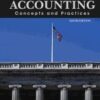
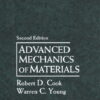
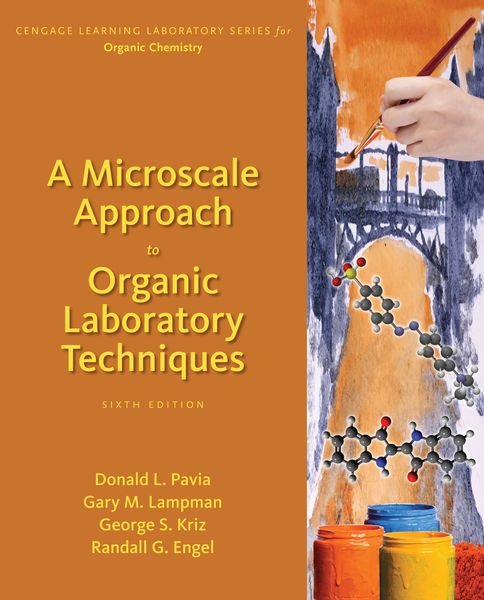
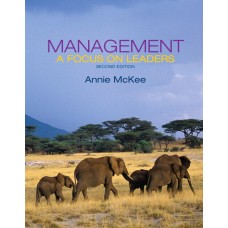
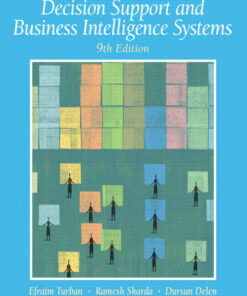

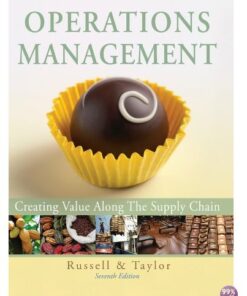
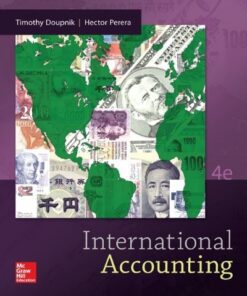


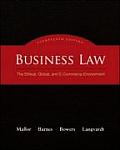
Reviews
There are no reviews yet.